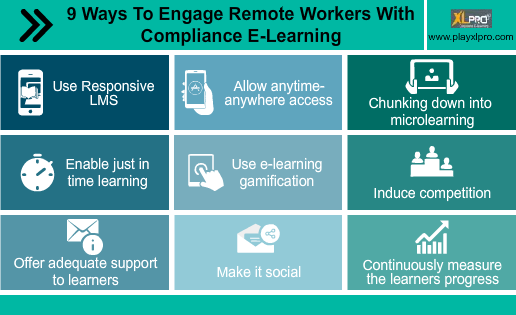Speech Delay Therapy You Need to Consider
Welcome to the world of speech delay therapy! If you or someone you know is looking for ways to overcome speech challenges, you’ve come to the right place. In this article, we will explore what speech delay therapy is all about and how it can help individuals improve their communication skills. So, let’s dive in and discover the exciting journey of speech development!
Communication is a superpower that helps us connect with others and express our thoughts and feelings. But what happens when there’s a delay in the development of our speech abilities? That’s where speech delay therapy comes into play. Think of it as a special kind of superhero training that helps individuals overcome their speech challenges and unlock their full potential!
Speech delay therapy is like having a personal coach who guides you through a series of fun and engaging activities. From tongue twisters and word games to picture cards and storytelling, there are countless techniques and strategies to kickstart your speech progress. So, get ready to embark on a fantastic adventure where words come alive and communication becomes a breeze!
Whether you’re a kid, a teenager, or an adult, speech delay therapy is available for people of all ages. It’s never too late to improve your speech skills and gain confidence in expressing yourself. So, if you’re ready to unlock the power of speech, join us as we explore the incredible world of speech delay therapy and discover the wonders it can do for you!

Speech Delay Therapy: Unlocking the Power of Communication
Speech delay can be a challenging obstacle for children, impacting their ability to communicate effectively. However, with the help of speech delay therapy, these obstacles can be overcome, allowing children to unlock the power of communication and gain confidence in expressing themselves. In this article, we will delve into the world of speech delay therapy, exploring its benefits, techniques, and how it can make a significant impact on a child’s development.
The Role of Early Intervention in Speech Delay Therapy
Early intervention plays a vital role in speech delay therapy. Identifying and addressing speech delays at an early age can help children overcome challenges and enhance their communication skills. When a child is diagnosed with speech delay, speech-language pathologists, or SLPs, perform a comprehensive evaluation to determine the underlying causes and develop an individualized therapy plan.
Through a combination of evidence-based techniques and personalized exercises, SLPs guide children in improving their speech sounds, language comprehension, and expressive language skills. Early intervention not only focuses on the child’s speech production but also takes into consideration their overall communication abilities, including social interaction and nonverbal communication.
By starting therapy early, children have a higher chance of catching up to their peers in terms of speech and language development. Speech delay therapy provides them with the necessary tools to bridge the gap and navigate the world of communication successfully.
Building Foundations: Speech and Sound Production
One of the primary objectives of speech delay therapy is to help children develop proper speech sound production. This involves targeting specific speech sounds, such as consonants or vowels, and teaching the child how to produce them accurately. SLPs use various techniques, such as articulation therapy or phonological therapy, to improve speech sound production.
During articulation therapy, the SLP focuses on teaching the child how to correctly move their lips, tongue, and jaw muscles to produce specific sounds. This may involve exercises like tongue twisters, sound repetitions, and imitating the SLP’s model. Phonological therapy, on the other hand, focuses on addressing underlying patterns or rules that may be affecting the child’s speech, such as substituting one sound for another or leaving out certain sounds.
Through consistent practice and guidance from the SLP, children with speech delay can gradually improve their speech sound production, leading to clearer and more intelligible speech. As they master the basics, they become more confident in expressing themselves and engaging in conversations.
Unlocking Language: Enhancing Comprehension and Expression
Speech delay therapy also covers language comprehension and expression, going beyond speech sound production. SLPs work with children to develop their vocabulary, sentence structure, and overall language skills. By targeting both receptive language (understanding spoken language) and expressive language (using words and sentences to convey meaning), children can effectively communicate their thoughts, needs, and emotions.
Vocabulary building is an essential component of speech delay therapy. SLPs use various strategies, such as word association games, picture cards, and storytelling, to enhance a child’s vocabulary. As their vocabulary expands, they gain the ability to express themselves more accurately and with greater detail.
Sentence structure and grammar are also addressed in speech delay therapy. SLPs guide children in learning how to construct grammatically correct sentences, use appropriate verb tenses, and understand the rules of language. By continually practicing these skills, children gradually develop a stronger grasp of language and become proficient communicators.
Boosting Confidence and Social Interaction Skills
Speech delay therapy not only focuses on improving speech and language skills but also plays a significant role in boosting children’s confidence and social interaction abilities. As children progress in therapy and develop their communication skills, they begin to feel more confident in expressing themselves and engaging with others.
SLPs often incorporate social skills training into speech delay therapy sessions. This includes teaching children how to initiate and maintain conversations, take turns during interactions, and interpret social cues. By equipping children with these essential skills, they can navigate social situations more effectively and build meaningful connections with peers and adults.
As children gain confidence in their ability to communicate, they become more willing to participate in class activities, share their thoughts, and engage in social environments. This boost in confidence has a ripple effect on other areas of their lives, leading to improved academic performance and overall self-esteem.
Key Takeaways – Speech Delay Therapy
- Speech delay therapy helps children improve their communication skills.
- Therapy sessions involve fun and interactive activities.
- A speech-language pathologist conducts the therapy sessions.
- Speech delay therapy can include exercises to improve articulation and language comprehension.
- Consistency and practice are key to achieving progress in speech delay therapy.
Frequently Asked Questions
Welcome to our frequently asked questions section on speech delay therapy. Here, you’ll find answers to common inquiries regarding speech delay therapy. We hope this information helps you navigate through this topic with confidence!
Q1: How do I know if my child needs speech delay therapy?
If you’re wondering if your child may benefit from speech delay therapy, there are a few signs to look out for. First, pay attention to their speech milestones. If your child is significantly behind their peers in terms of speech development, it might be an indicator. Additionally, if they are struggling to pronounce sounds, have difficulty following instructions, or show frustration when communicating, therapy could be beneficial.
Evaluating your child’s speech development is crucial, and if you have concerns, it’s always a good idea to consult with a speech-language pathologist (SLP). They will conduct a thorough assessment to determine the need for speech delay therapy, tailoring the treatment plan to your child’s specific needs.
Q2: What does speech delay therapy involve?
Speech delay therapy encompasses various techniques and activities to help children improve their speech and language skills. These therapy sessions typically involve one-on-one sessions with a speech-language pathologist. The therapist will engage your child in activities that target specific areas of speech development.
Therapy sessions may focus on improving articulation, speech clarity, language comprehension, vocabulary expansion, and social communication skills. The sessions may include exercises, games, and use of assistive devices such as visual aids or communication boards. The frequency and duration of therapy sessions will depend on your child’s individual needs and goals.
Q3: How long does speech delay therapy take?
The duration of speech delay therapy can vary depending on the severity of the delay and individual progress. It’s important to understand that progress is different for each child, and there is no fixed timeline for therapy duration. Regular attendance and active participation in therapy sessions play a significant role in achieving positive outcomes.
Your child’s speech-language pathologist will create an individualized treatment plan, setting realistic goals based on their evaluation. They will regularly assess progress and make adjustments as needed. Remember, consistency and ongoing support are key factors in helping your child make significant strides in their speech development.
Q4: Can I support my child’s speech delay therapy at home?
Absolutely! Supporting your child’s speech delay therapy at home can be highly beneficial. Your speech-language pathologist can provide you with strategies and activities to incorporate into your daily routine. Consistency is crucial, so be sure to set aside dedicated time for practice.
Reading books together, engaging in conversations, playing pronunciation games, and utilizing visual aids can all contribute to your child’s progress. Creating a language-rich environment and praising their efforts can also boost their confidence and motivation. Remember to consult with your child’s therapist for specific home practice recommendations tailored to your child’s needs.
Q5: What should I do if I have concerns about my child’s speech development?
If you have concerns about your child’s speech development, the first step is to consult with a speech-language pathologist. They are trained professionals who specialize in assessing and treating speech and language disorders. They will conduct a comprehensive evaluation and recommend appropriate interventions if needed.
Early intervention is crucial in addressing speech delay, as it can significantly impact a child’s overall communication skills and academic success. Don’t hesitate to reach out for professional guidance and support. Speech-language pathologists are there to help you through this journey and provide the necessary resources to promote your child’s speech and language development.
How to Do Speech Therapy with Toddlers at Home
Summary
It’s important to address speech delays as early as possible. Speech therapy can help children improve their communication skills. Therapy sessions may include exercises, games, and activities tailored to each child’s needs. Consistent practice and support from parents and caregivers are crucial for success. Remember, every child progresses at their own pace, so be patient and celebrate their achievements along the way. With therapy and support, children with speech delays can make great strides and develop strong communication skills.


